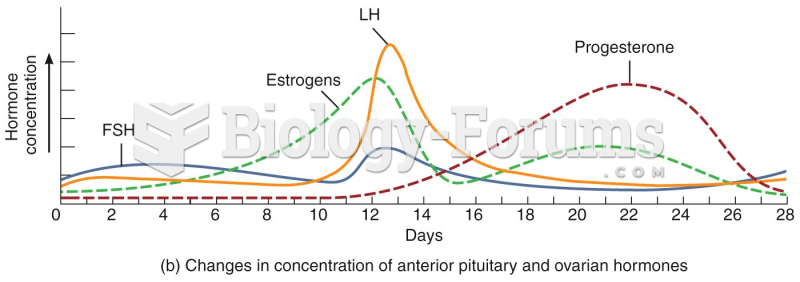|
|
|
Most childhood vaccines are 90–99% effective in preventing disease. Side effects are rarely serious.
In 1835 it was discovered that a disease of silkworms known as muscardine could be transferred from one silkworm to another, and was caused by a fungus.
There are more sensory neurons in the tongue than in any other part of the body.
Although the Roman numeral for the number 4 has always been taught to have been "IV," according to historians, the ancient Romans probably used "IIII" most of the time. This is partially backed up by the fact that early grandfather clocks displayed IIII for the number 4 instead of IV. Early clockmakers apparently thought that the IIII balanced out the VIII (used for the number 8) on the clock face and that it just looked better.
The most common treatment options for addiction include psychotherapy, support groups, and individual counseling.







